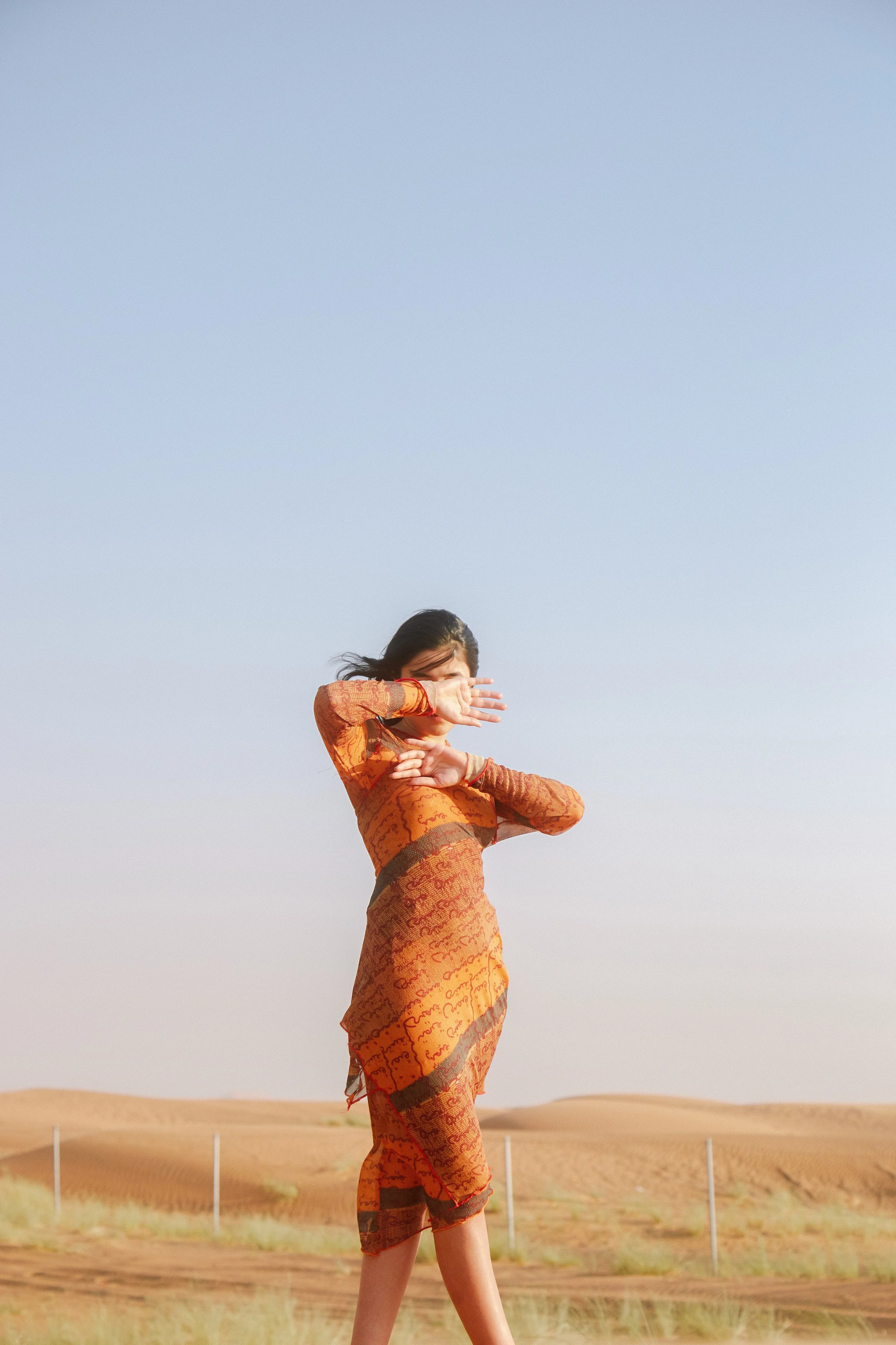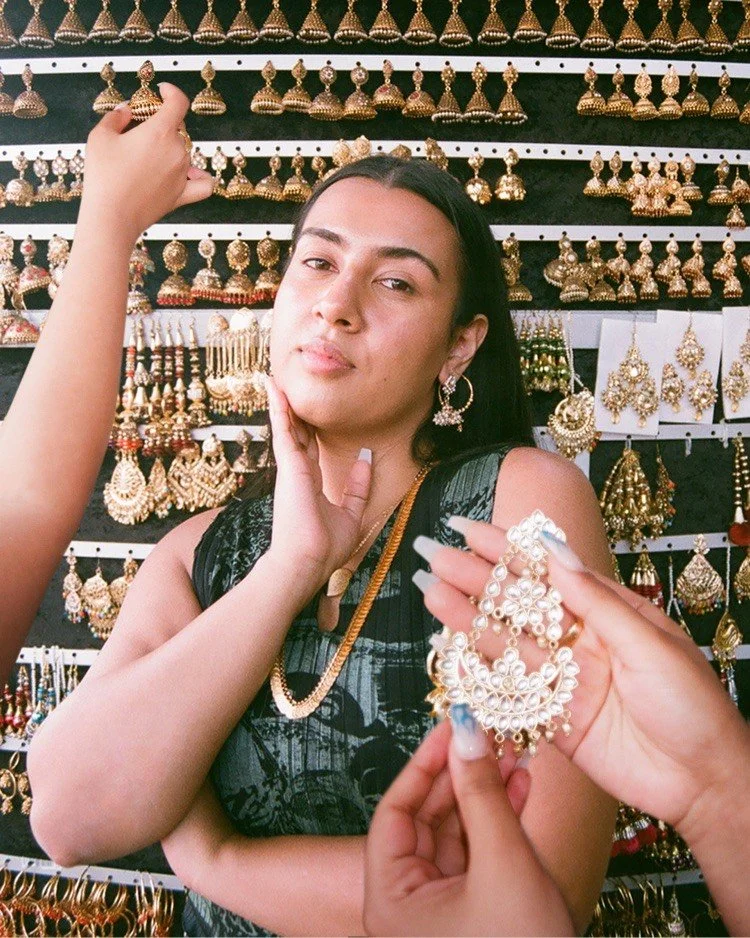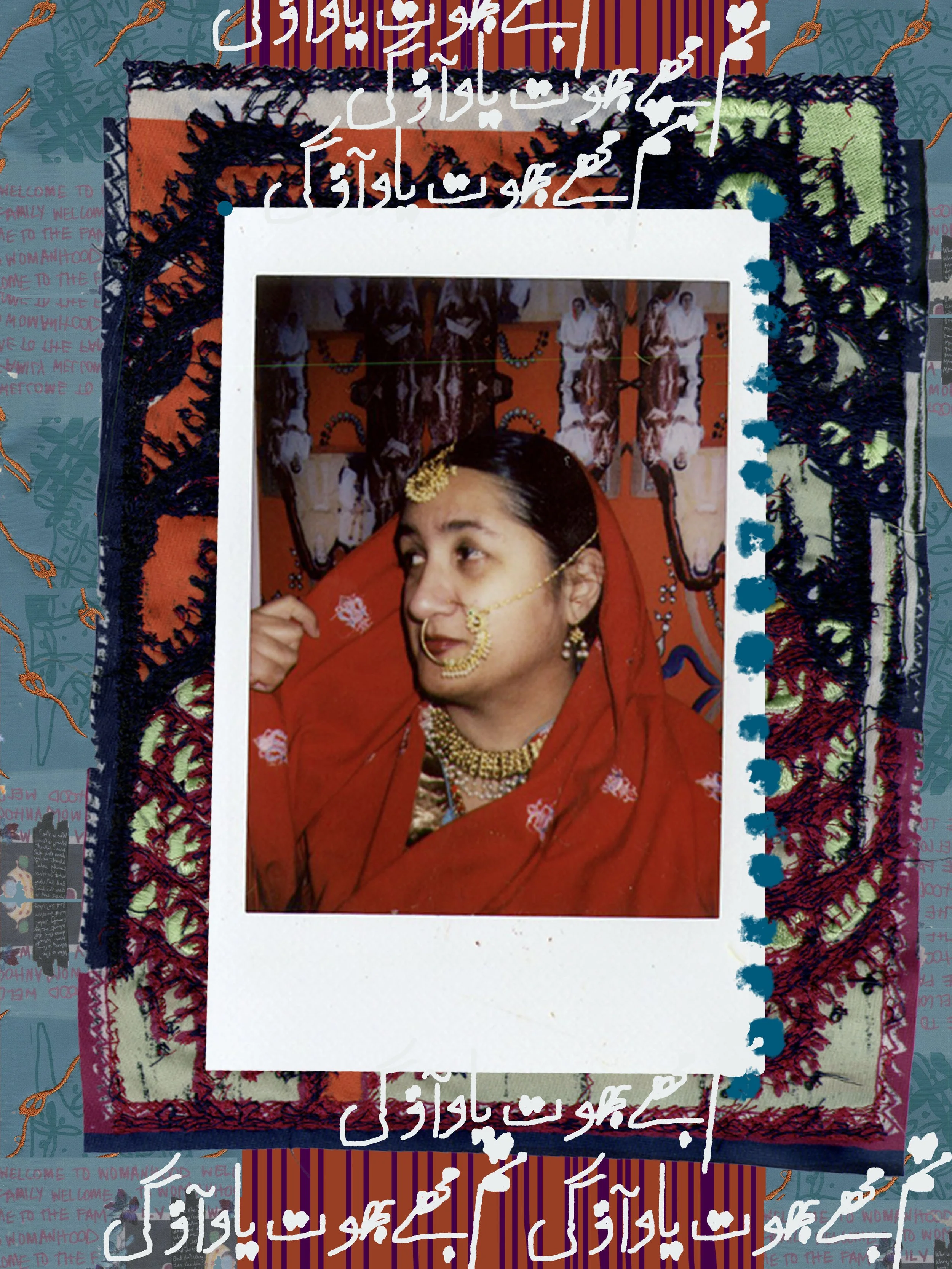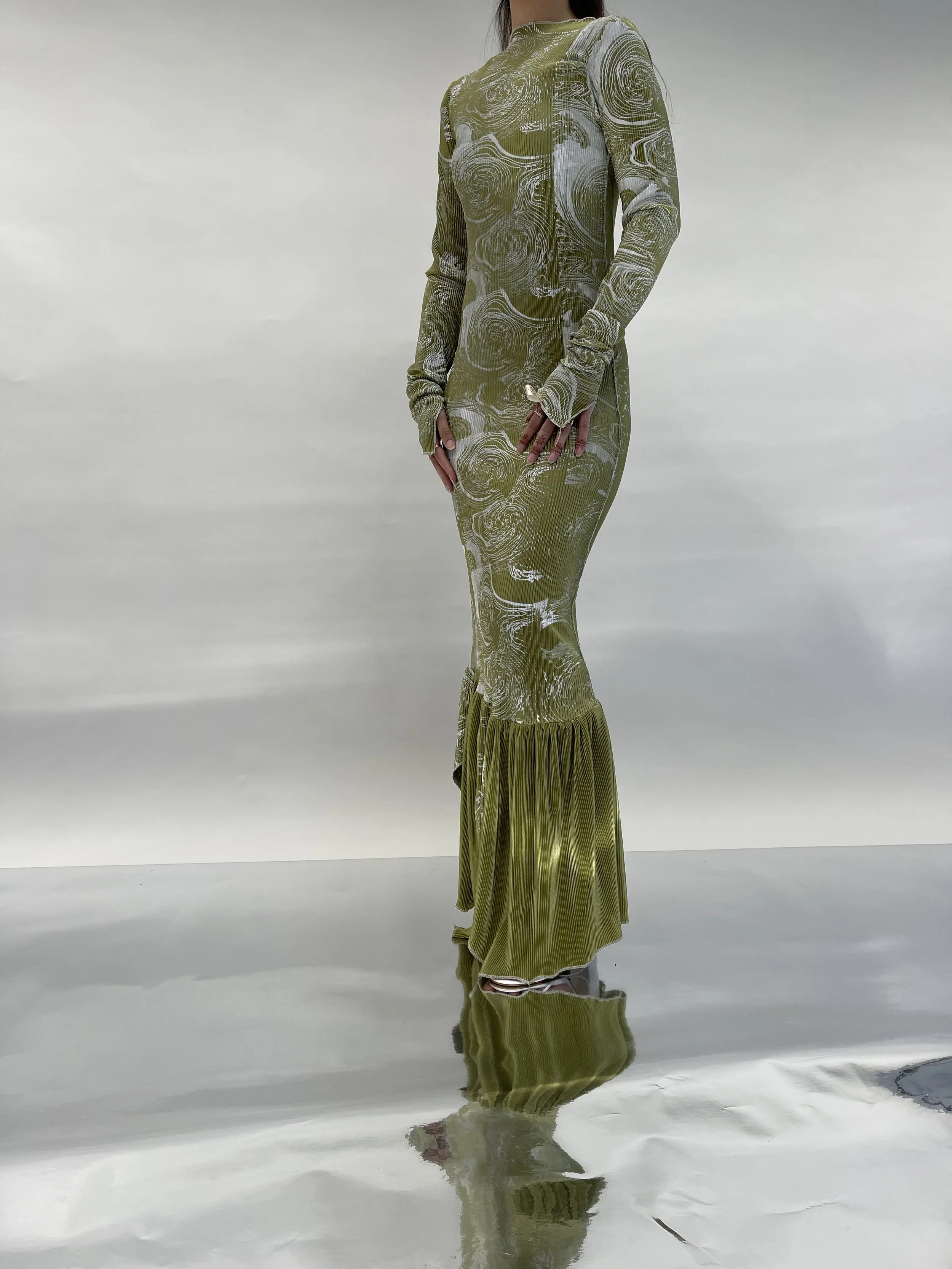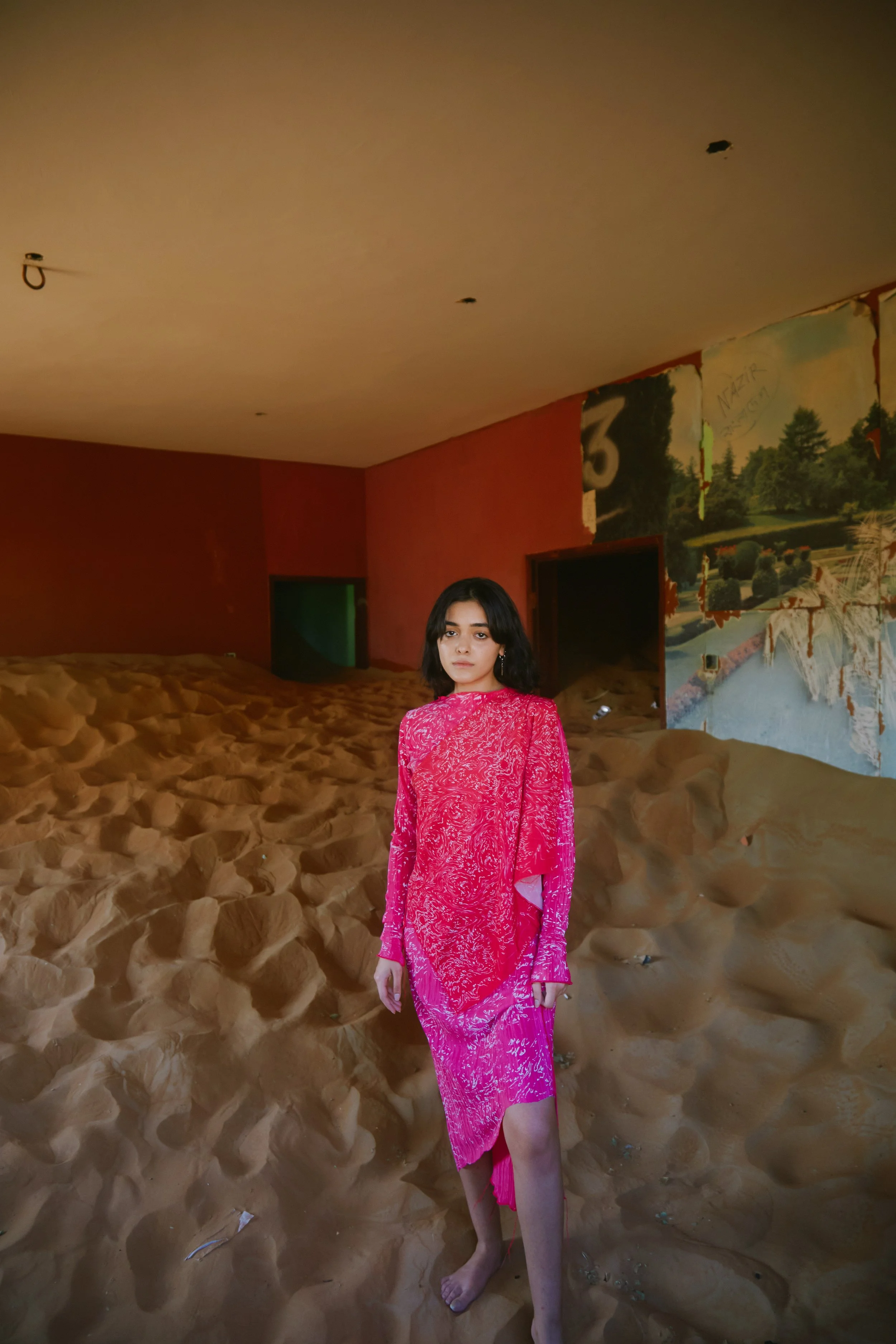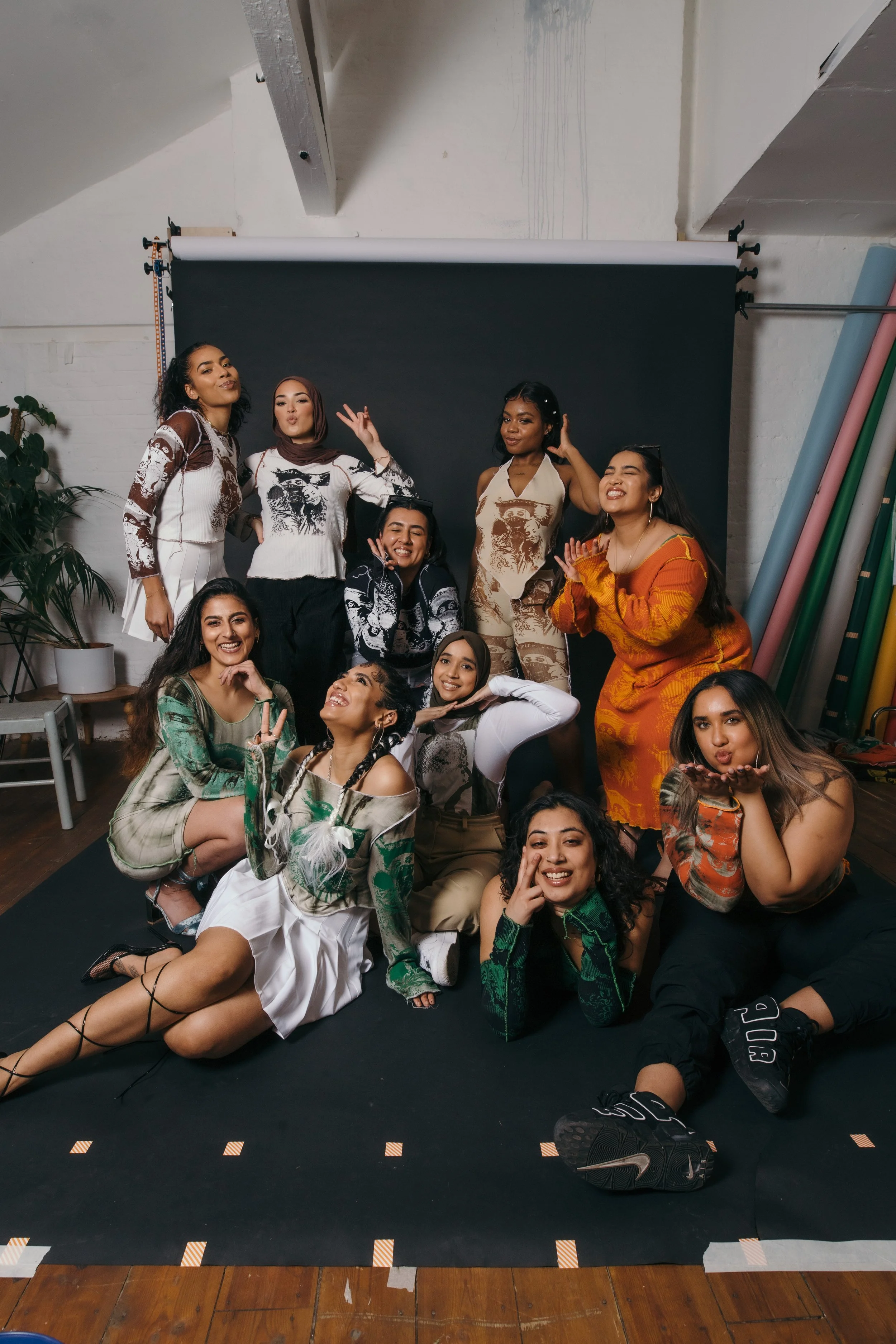Hadiyah Hussain: Sisterhood
‘My Pakistani culture and heritage is a key influence in my work – exploring themes of sisterhood, family and migration stories through my grandmother’s anecdotes.’
Hadiyah Hussain, the textiles designer, weaves stories that bring together London and the diverse lives that make up its streets. Her label embodies the city’s multicultural spirit, creating clashing prints and collage-like textures to create a language of unity.
With each collection, Hadiyah celebrates the profound legacy of sisterhood, emphasising the strength and resiliences that emerges from shared life experiences. Every meticulously crafted garment tells a story of resourcefulness and mindful consumption, breathing new life into materials that might otherwise go to waste, utilising locally sourced dead-stock fabrics.
For those that aren’t familiar with your work, could you outline your upbringing, the philosophy behind your brand, its origins and how it was born?
I started the brand in March 2020. It was lockdown in London and the height of the pandemic and I was also on my gap year from university. I didn’t really have a plan I was just bored and missed being proactive and creative. I didn’t take it seriously until maybe the end of 2021 and started to really believe in myself.
My work is all about my upbringing in east London and the influences around. My Pakistani culture and heritage is a key influence and theme in my work – exploring themes of sisterhood, family and migration stories through my grandmother’s anecdotes. Each print or series of designs I create are connected to a theme and story.
The stereotype that British Asian parents push their children to be doctors or bankers rings true for many, meanwhile the idea of following creative pursuits as a career is often frowned upon. What was it like for you growing up in a Pakistani household and deciding to venture into fashion?
I’ve been very blessed to have parents who were always very supportive of my academic and creative decisions. My mum encouraged my arty side, she enabled me to have lots of extra opportunities growing up. I loved history and law (and still do) which I got from my dad so my decision was always going to be off what I enjoyed more. When it came down to applying for universities, I had the opportunity to apply for Central Saint Martins, I didn’t even know what that institution was if I’m honest but a few of my friends applied and they encouraged me to do the same. Everything just snowballed from there.
I’m grateful to have the family support that I’ve had, and I appreciate that others may not have it as easy, but I’d always encourage people to pursue their passion. With hardship comes ease and as hard as it’d be putting your parents’ dreams on the back burner the hard work will be worth it. You have one life; take every opportunity you get to be happy and in turn your parents and family will follow.
How has your Pakistani heritage impacted your design process and what influences when finding inspiration for your collections? You previously spoke about your grandmother, being a big influence. Can you share specific instances where she played a significant role in shaping your designs?
I love exploring my Pakistani heritage, I was so disconnected from it growing up so I’ve only just hit the surface of what I want to investigate and discover. One of my goals is to travel to Pakistan and work with local artisans and communities, learn traditional and dying techniques in print, knit and weave. My design process starts with photography both old and new. Looking through old family archives and photo albums is one of my favourite things to do, I always find some kind of design inspiration from there.
My grandmother always wanted me to be a designer of some kind, she kept all my little doodles I did as a kid and to this day she still wants me to use them to make a printed fabric, and I defiantly plan to soon. Her knowledge about Pakistan, her stories about the people, partition, culture, language, food .. the list goes on, is what inspires me. There’s so much to learn. I’ve shown her all my work, all my pieces and fabrics and designs and she’s my number one fan!!
How important do you believe it is for the fashion industry to prioritise the use of dead-stock materials, and what role does sustainability play in your brand’s philosophy? Additionally, could you share your thoughts on the exploitation of your motherland through the fast fashion industry and how conscious consumer choices can make a difference in addressing this issue?
There’s no excuse for any brand in the time we are living in not to prioritise, or at the very least incorporate sustainability practices within their design and making process. There are plenty of small brands / designers including myself who are slow fashion designers and work on a zero-waste practice. As a small designer it’s easier to go to a warehouse in London and find dead-stock fabrics to work with, it’s one of the fun elements to my process as I never know what I’m going to find.
I make a lot of one of one pieces from scraps which are always fun. There’s too much to say about the fast fashion industry and the exploitation of South Asia as a whole, not just Pakistan. So many immoral and unethical practices happening in plain sight and we can only hope with more advocating and by understanding why it’s so important to shop small, slow, smart and second hand that they’ll eventually slow down or come to an end. So instead I’m going to highlight amazing brands/companies/designers that work with local artisans in south Asia, or give back to the community in some way, making positive impacts. You can find all these on Instagram, @norblacknorwhite, @amesh.wijesekera, @nobordersshop, @rahemurrahman.
The fashion world has vowed for change for as long as its inception. Do you think we are there yet in terms of representing cultures that so heavily inform the industry?
Definitely not, nowhere close. I think we are making steps in terms of showing up for ourselves, but the recognition isn’t there and we are doing all the work it feels like. I think the fashion industry is still this pretentious place, resources being inaccessible for the people with all the big ideas that both inform the industry and keep it relevant. We are pulling our weight and then some and yet we still have to be invited in?
I love that there are lots of POC lead collectives creating strong communities, storytelling about narratives that are so important. There are also plenty of people who have influence that share their knowledge as well as offer amazing opportunities for people who are looking to get into their creative field. I believe as long as we keep going in the right direction and building each other up we are bound to start seeing the results we want.
Who would be the dream brand/artist you’d love to collaborate with in order to push your work and message of your brand further?
There are so many designers and artists I admire and I’d love to work with. Ashish, Tolu Coker and Ahluwalia are my top three at the moment. In terms of storytelling, colour, texture and design they tick all the boxes and it’d be a dream to work with all of them ! I’m a massive fan of Hassan Hajjaj and Mous Lamrabat as artists I’m literally obsessed with their work and they’ve informed a lot of my work.
Lastly, what does the future hold for Hadiyah Hussain?
I have so many amazing collaborations and projects coming up that I’m excited for. I tend not to think too much about the future and just go with the flow. Say yes to as many opportunities as I can and just see what happens. Do everything for the plot , stay tuned I guess.
Images courtesy of Hadiyah Hussain

